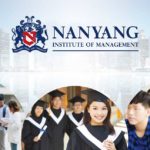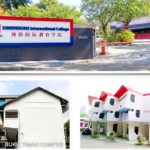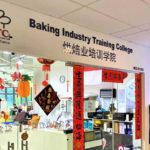
19 Apr Study in Singapore
Singapore offers a progressive education system with state-of-the-art facilities. The standard of education is excellent across all levels, starting right from the primary level.
Singapore is a cosmopolitan city and home to students from all the continents across the globe.
Singapore has a long tradition of educational excellence and its economy is today a knowledge-based one. As such, colleges and universities in Singapore offer a high quality of learning with a rigorous education system that is held in high esteem around the world.
It has been seen that students from Singapore consistently outperform the international average in both Math and Science. Students in this competitive environment acquire superior skills and abilities to hold their own against the best in the world.
Singapore is an ideal destination for building great career opportunities as well. Thus, students who have completed their education in Singapore can find plenty of employment choices in various sectors of their choice.
International students will find it simple to find their own niche among the various nationalities that live, study and work together harmoniously in this tiny island-state.
Work Rights For Students
International students are normally not permitted to work part time during their studies unless the college offers them an internship. This is quite common in Singapore institutions.
With a Work Pass Exemption, International students are allowed to work a maximum of 16 hours per week in Singapore.
Post-study Employment Rights
The post study work visa does not give an extension for a year. The extension is only for 2-3 months after course completion. Students who want to stay back and work in the country should secure a job and later apply for a work permit.
Type of Visas
- Employment Pass: For foreign professionals, managers and executives. Candidates need to earn at least $3,600 a month and have acceptable qualifications.
- Entre Pass: For eligible foreign entrepreneurs wanting to start and operate a new business in Singapore.
- S Pass: For mid-level skilled staff. Candidates need to earn at least $2,200 a month and meet the assessment criteria.
Long-term Stay
Even though Singapore is geographically small, there are a lot of jobs available for international students. As per the Government of Singapore, the following industries are currently booming in the country – Manufacturing, Construction, Tourism and Retail, Healthcare and Finance Information Communications and Digital Media.
As an international student who has completed his/her graduation from a select university in Singapore, you will be allowed to apply for a ‘Long Term Visit Pass’ which will enable you to stay in Singapore for a maximum period of 1 year even if you don’t have a job. This gives students an additional year to seek employment.
Once you find a job, you will need to obtain a ‘Work Pass’ of one form or the other to work in Singapore.
However, you should keep in mind that these laws are formulated on the basis of various economic and political policies and can change from time to time. New visa categories keep coming up and old ones keep getting discontinued.
Dependents Stay
The Dependent Pass (DP) allows work pass holders to bring spouse and unmarried children to Singapore. Work pass holders include EntrePass, Employment Pass (EP), Personalised Employment Pass (PEP) and S Pass holders.
A DP holder can live in Singapore. Furthermore, with the proper approval, a DP holder can work and study in Singapore.
Course options in Singapore
- BTech
- MBA
- MS
- BBA
- MASc
- MEng
- BSc
- MIM
- MFin
- MArch
- MA
- MIS
- MFA
- MArch
- BHM



